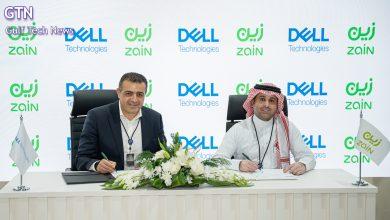Mastercard and Nclude Partner to Accelerate Egypt’s Fintech Ecosystem and Boost Financial Inclusion

Riyadh, Saudi Arabia; gulftech – Mastercard has announced a strategic investment in Nclude, a fintech focused VC investment platform launched in partnership with Egypt’s leading national banks – Banque Misr, National Bank of Egypt and Banque Du Caire – to further boost Egypt’s vibrant fintech ecosystem and support the country’s digital transformation journey. The partnership will deepen financial inclusion across Egypt by investing in promising early-and-growth-stage fintech and fintech enabled companies.
The announcement builds on Mastercard’s commitment to supporting the government’s efforts and favorable regulations aimed at transforming Egypt into a digital, financially inclusive society by harnessing the power of technology.
“Our contribution to Nclude stems from our longstanding commitment to accelerate the country’s digital transformation, drive financial inclusion rates and to reinforce Egypt’s position as an innovation hub for the fintech industry in the wider region,” said Khalid Elgibali, Division President, Middle East, and North Africa at Mastercard. “We see a new door for opportunity in our collaboration with Nclude fund, where Egyptian fintechs can be offered an enabling environment to achieve their full potential.”
“Mastercard’s global platform and commitment to fintech is a great complement to the Nclude strategy. We are super excited to welcome their global expertise to the entrepreneurial ecosystem in Egypt” said Basil Moftah General Partner at Nclude.” Fintech and fintech enabled companies are witnessing exponential growth in the market and we look forward to partnering with Mastercard to continue to fuel this growth and position Egypt as a Regional center of excellence for fintech innovation.”
The Central Bank of Egypt (CBE) is leading a vision to position the country as an Innovation Hub for fintechs across the Middle East and Africa by upskilling youths to close talent gaps, improving access to capital, and developing technology infrastructure. These efforts are geared to rapidly increasing the rate of financial inclusion to benefit all Egyptians, only over 56% of whom are included in the formal economy. It also focuses on filling the huge SME lending gap in Egypt, as well as elevating the quality of financial services offered in the country to businesses and individuals.
“Having Mastercard invest in Nclude is definitely a milestone for us. This fund will enable us to further support entrepreneurs in Egypt’s vibrant startup ecosystem who are driving fintech innovation and helping transform the country into a digital and financially inclusive economy,” said Eslam Darwish, Founding General Partner at Nclude. “The partnership with Mastercard will also help us provide ambitious founders with the tools they need to succeed and compete at local, regional, and global levels.”
“We are excited to collaborate with the Nclude Fund in continuation of our efforts to increase financial inclusion in key markets like Egypt, underscoring our global goal of connecting one billion people to the digital economy,” said Adam Jones, Country General Manager, MENA Central at Mastercard. “Through this partnership, we aim to empower Egypt’s rapidly evolving fintech ecosystem in order to allow individuals and businesses to have access to quality financial services, thus promoting the growth of the country’s digital and formal economy.”
Nclude was launched in March 2022 upon approval by the CBE, and initially saw an investment of $100 million from the 3 national banks as well as Egyptian Banks Company (EBC) and eFinance. With Mastercard, a pioneer in advancing financial inclusion in Egypt and the world, joining in, Nclude Fund is quickly becoming a go-to fund for fintechs looking to grow their operations and services.
Mastercard’s dedication to supporting financial inclusion globally saw the company pledge to connect 1 billion people and 50 million micro and small businesses, including 25 million women entrepreneurs, to the digital economy by 2025.




